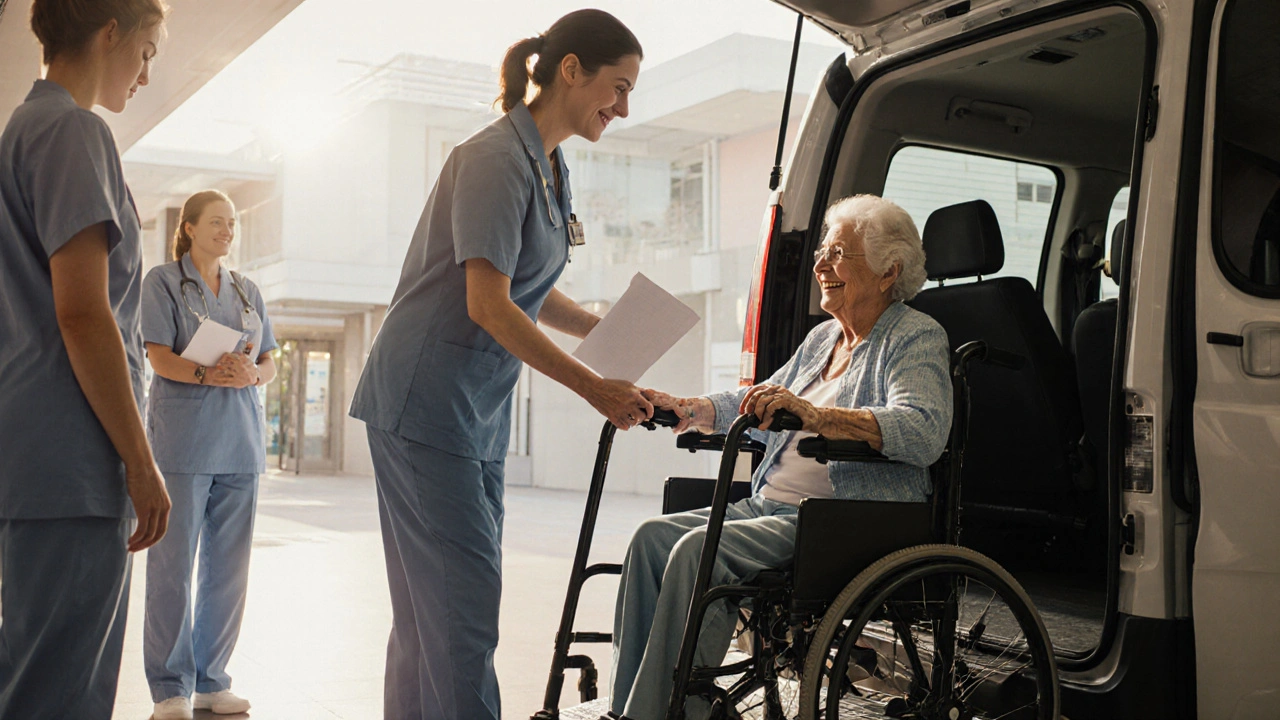Safe Patient Transport: What It Is and How It Helps Patients and Families
When someone leaves a hospital after surgery, treatment, or a long stay, they often can’t drive themselves home. That’s where safe patient transport, a service that provides trained, non-medical or medical support for individuals moving between healthcare facilities or to their homes after treatment. Also known as medical escort services, it’s not a taxi—it’s a bridge between clinical care and recovery at home. These services are used by elderly patients, people recovering from surgery, those with mobility issues, or anyone who needs help navigating complex medical environments. In places like large hospitals in Dubai or Sydney, where parking is confusing and departments are spread across multiple buildings, safe patient transport keeps people from getting lost, missing appointments, or ending up stranded.
Medical escort services, trained individuals who accompany patients during transport to ensure safety, comfort, and continuity of care. Also known as post-procedure care assistants, they don’t just drive—they monitor vital signs, carry medications, communicate with family members, and help with mobility aids like wheelchairs or walkers. They’re especially critical after same-day surgeries, where patients are still groggy from anesthesia or have limited mobility. These services reduce readmission rates by making sure patients get home safely and understand their aftercare instructions. And in multilingual cities, many escorts also provide language interpretation, professional communication support during medical visits to prevent misunderstandings that could lead to errors. Also known as healthcare interpreters, they ensure patients who speak limited English aren’t left guessing about their discharge plan.
Safe patient transport isn’t covered by most health insurance plans, which leaves families scrambling to pay out of pocket. But the cost of skipping it—missed meds, falls, emergency returns—is far higher. Many services now offer flexible scheduling, wheelchair-accessible vehicles, and even coordination with home care nurses. Whether it’s a 70-year-old going home after a knee replacement or a cancer patient needing rides to weekly chemo, this service turns a stressful transition into something manageable. And for caregivers, it’s not a luxury—it’s a lifeline.
You’ll find real stories here—from families who used medical escorts after a stroke to patients who avoided hospital readmission because someone showed up with their meds and a clear schedule. You’ll learn how to choose a reliable provider, what questions to ask before booking, and how to spot red flags in service contracts. This isn’t theoretical. These are the tools, tips, and truths people actually use when the system doesn’t make sense.

- Nov, 20 2025
- 0 Comments
Hospital Discharge Support: How Medical Escorts Help Patients Get Home Safely
Medical escort services help patients safely transition from hospital to home, offering trained support, transportation, and care coordination-especially vital for seniors and those with limited mobility.
read more